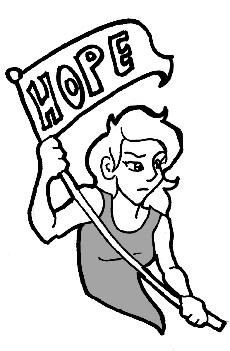“”Do I dare to eat a peach?”” wondered T. S. Eliot’s hapless hero, J. Alfred Prufrock. With only hours to go until the most anticipated event in recent American history, I’ve been feeling a bit Prufrockian myself. The question on my mind is this: “”Do I dare to get excited?””
How excited should any self-respecting American allow himself to get about the election of any politician? Barack Obama, after all, is a man composed of the usual sum of good and bad qualities that make up most of our public figures. But he’s clearly shown himself to be a decent person; after clawing at his life for more than two years, the press has discovered exactly no skeletons in his closet.
Is that enough? Is any litmus test enough for us to safely grant any person access to the most powerful office in the world? Can we really entrust any person with more power than any tyrant in history ever enjoyed? Can we trust anyone with that power who would want it?
The impulse to do good exists side by side with the impulse to do ill in all of us. The difference with men of power is that they have the ability to do both. It is needlessly pessimistic to assume that power corrupts, as the old cliché goes. Lyndon Johnson’s best biographer, Robert Caro, put it more accurately: “”Power reveals.”” It reveals whatever lies at the bottom of your mental closet far more ruthlessly than any scandal sheet ever could. It inflates your vices and your virtues beyond recognition.
Its results are terrifyingly unpredictable. It can turn a flawed man with a deeply good nature, like Winston Churchill, into a great statesman. And it can turn a seemingly good man into a tyrant. Dick Cheney’s former pals often speak, in bewildered voices, of how unrecognizable their old fishing partner now seems.
What kind of president will Obama be? It’s unknowable. We can’t imagine the Obama we know -ÿor believe we know – behaving like a tyrant. That is exactly why we elected him. Millions of Americans, as fed up and frustrated with the likes of Nancy Pelosi as George W. Bush, looked at Obama and decided to entrust him with unimaginable power. That is what Woodrow Wilson once called “”the mystery of democracy.””
The mist will barely have evaporated from our eyes before we’ll find ourselves plunged into the drama and excitement of the new administration. Much ink has been spilled about whether Obama will seek to appease the “”left,”” will swing “”right”” in an attempt to quell the opposition, or govern from the “”center.”” I think these categories are largely fake. No policy maker thinks in these terms.
As a Jeffersonian republican of the old school, my main concern is upholding and enhancing popular government. By upholding it, I mean adhering to the Constitution. By enhancing it, I mean pursuing policies that would give citizens a greater voice in their government.
That is not always easy to define, and for now, I confess I’d be content to have a president who actually followed his oath of office -ÿa president, that is, who I could seriously picture striking down a proposed policy by saying, “”That’s unconstitutional.””
But Americans, for better or ill, will never be satisfied with that. That’s why we voted for Obama rather than, say, Ron Paul. We want a president who will fight for the ideals of libery and equality, who will curb undeserved privilege – whether enjoyed by corporations or individuals – and who will rein in the despotic impulses of other leaders. That is certainly the mandate Obama has been granted by the electorate.
What Obama can actually do to enhance self-government is harder to say. Certainly his proposed national service plan could easily backfire, becoming no less odious an example of federal high-handedness than No Child Left Behind. I think Obama should continue to chart the path he did as candidate and president-elect, when he sought to involve the people in his campaign more than any candidate in our history.
I won’t lie: I am excited. I expect great things from Obama’s administration – more than I’ve dared to expect from any leader in my entire life. Every time cynicism threatens to tug me on the collar, I shake it off. It’s both foolish and self-defeating to assume the worst before it happens. Is it foolish to assume the best? The best, after all, is sometimes what we get.
– Justyn Dillingham is the opinions editor of the Daily Wildcat. He can be reached at letters@wildcat.arizona.edu.









